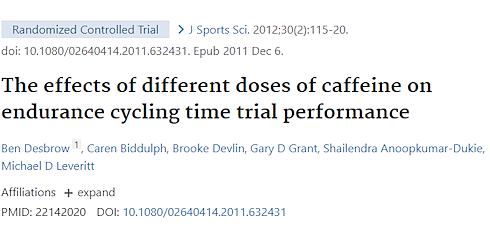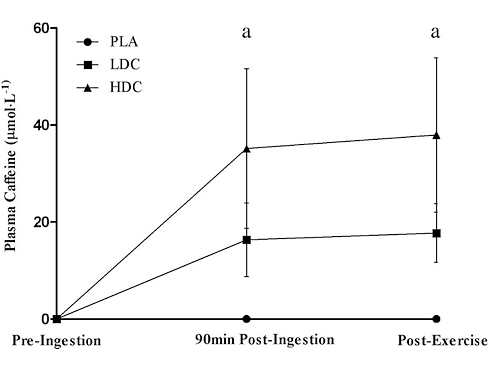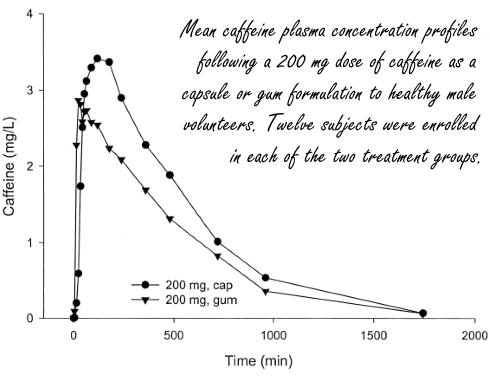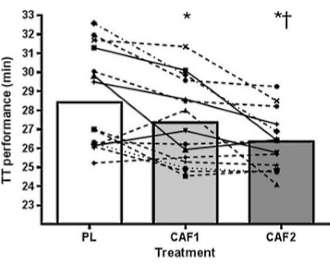|
Definition: "An ergogenic aid is any substance or phenomenon that enhances performance "
|
|
||||||||
20.08.2023 |
|
|
210 or 420 milligrams - which dose of caffeine works better?
When trained cyclists take a reasonable dose of caffeine of about 210 milligrams, they ride faster than after taking twice that dose. Australian researchers at Griffith University came to this somewhat paradoxical conclusion in a human study that was published in 2011 in the Journal of Sports Sciences.
Study
Desbrow had calculated for each runner how much work they could theoretically do if they could run at 75 percent of their maximum oxygen uptake for 60 minutes. Then, during a time trial, Desbrow looked at how long it took the riders to do this amount of work.
Just before and twice during their time trial, the riders were given a sports drink with quickly absorbable carbohydrates.
Desbrow performed this procedure 3 times. One time they took a placebo 90 minutes before their session, the other time a dose of 3 milligrams of caffeine per kilogram of body weight and another time a dose of 6 milligrams of caffeine per kilogram of body weight.
Results
Textbooks often give the impression that the concentration of caffeine in the blood peaks 45-60 minutes after ingestion. That's not what you would expect when you see the chart below.
Other research results
Like Desbrow, Martin compared the effect of 3 milligrams of caffeine per kilo of body weight with that of 6 milligrams of caffeine per body weight.
Desbrow gave his test subjects breakfast before letting them cycle and provided them with a sports drink during the session. Desbrow administered the supplement 90 minutes before the time trial. Martin got his subjects to cycle sober and administered the supplement 60 minutes before the time trial.
Perhaps the optimal dose of caffeine depends on carbohydrate administration. If you use carbohydrates, this optimal dose may be lower lower. However, if you add carbohydrates, the time it takes for caffeine to get into the blood may also be longer. Longer perhaps than the 45-60 minutes you find in the manuals.
Consensus
The compilers of that paper read no less than 420 scientific articles about caffeine and sports, but did not arrive at an unambiguous optimal dose of caffeine. They state that the optimal dose of caffeine is probably somewhere between 3 and 6 milligrams of caffeine per pound of body weight. They can't get any more accurate than that.
Source: More: Archives:
|
|
|||||||||||||||||







